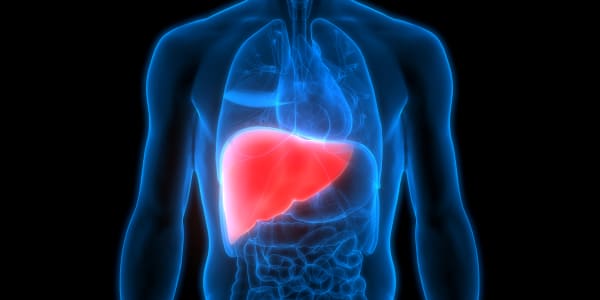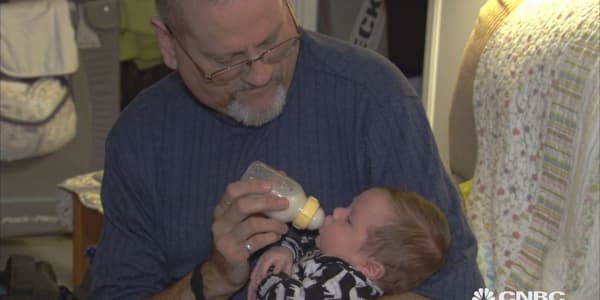Dean Kamen, to most of the country, is known as the person who invented the Segway. But ultimately, he wants to be known as the man who revolutionized healthcare.
It's a daunting challenge, he concedes, arguably his most ambitious yet, but he's got some heavy hitters on his side, including the Department of Defense, the National Institute of Standards Technology (NIST) and the Institute of Electrical and Electronics Engineers (IEEE).
The goal for ARMI, his new company, is straightforward: Create an industry that can produce human organs and tissue, including kidneys, livers and lungs, fabricated from the recipients' own cells. It's called biofabrication and he's perfectly aware that it sounds like the stuff of science fiction. Considering nearly 120,000 Americans are waiting for a donated organ, and 20 of them die each day waiting for a transplant, it's a very important medical pursuit.
"Our whole perspective is the stuff of science fiction over the last generation or two — cloning, The Bionic Man —all of these things were sci-fi for a long time, but are reality today in some sense," he says.
Kamen's not a scientist; he's an inventor known for creating such devices as the Segway and the first wearable drug infusion pump for diabetics and other types of patients. But, he says, there are amazing creations happening in laboratories and universities around the world that have never been commercialized because no infrastucture exists to do so. That, he says, was the spark behind ARMI, the Advanced Regenerative Manufacturing Institute based in Manchester, New Hampshire.
"We are going to learn to do the manufacturing of human organs in real time," he proclaims. "I am assuming the scientific community can deliver these miracles… We are assuming they can deliver to us the recipe [for those] that we [allows us to] make one. We think it doesn't require any new miracles from the worlds of engineering or manufacturing."
That's a big boast, especially for someone whose background isn't in the field of medicine. But Kamen says his expertise in other areas is, for ARMI's purposes, more important.
More from Modern Medicine:
Soon printing a human heart on demand will not be sci-fi
Experts use new tools to combat organ transplant shortage
"I don't know anything about regenerative medicine," he says. "I'm not a doctor. I'm not a biologist. I'm not a biochemist. We don't do that stuff. It's magic goo in a ball, but ... somebody has to figure out how to add process control and verification. We've got to add the disciplines of engineering— many phases of engineering. We've got to bring this thing to scale to assure the FDA of its quality and get [things like artificial organs] in a human body. That's a massive amount of work. That's a massive, diverse set of expertise that, right now, doesn't exist in one place."
ARMI is at the very beginning of its genesis. The DOD has given Kamen $80 million to fund the company with the strict instruction that the money not be used on research, but rather to build the infrastructure for the producing real world results.
We are going to learn to do the manufacturing of human organs in real time.Dean KamenFounder of ARMI
That money came with a catch. Kamen was also required to raise an equal amount from the private sector. He didn't raise $80 million. He raised $214 million from Rockwell Automation and other companies he works with regularly.
He also began assembling a staff of experts. Rockwell Chairman Blake Morett joined ARMI's board of directors. And he says he has assembled a staff of 26 medical experts from schools such as Harvard and Stanford.
Kamen likens what he's doing with ARMI to the invention of the semiconductor industry — a breakthrough that, when it was manufactured at scale, gave birth to the modern technological world.
To try to achieve that same level of success, he has enlisted NIST to help form standards that keeps work in the field focused — a key requirement in getting FDA approval when it begins biofabrication. And IEEE is assisting in bringing together the multiple engineers that will be required to make this a reality.
While the recreation of human organs captures the most attention, Kamen acknowledges that's going to take a little extra time. However, he says, ARMI has promised the DOD that within five years it will have the capabilities to supply, at significant scale, products that are just as essential.
"It will probably be skin and bone and cartilage," he says. "In the end, the whole heart, ling, liver, kidney … we think we'll get there. Up front, much simpler than those complex organs ... they [the DoD] need nerves; they need muscle. They've asked 'What about can you give me … to rebuild someone who had an interaction with an IED?"
It's a project that has tremendous potential, but will require a tremendous amount of work. And Kamen is a man who likes to keep his fingers in many different pies. While he's not stepping away from FIRST, his program to get students interested in science, technology and engineering, or any of his other projects, he says ARMI is anything but a side project for him.
"I don't spend my whole day [focused on it], but I can tell you ARMI is not 'instead' of my day job, it's in addition to it," he says.




